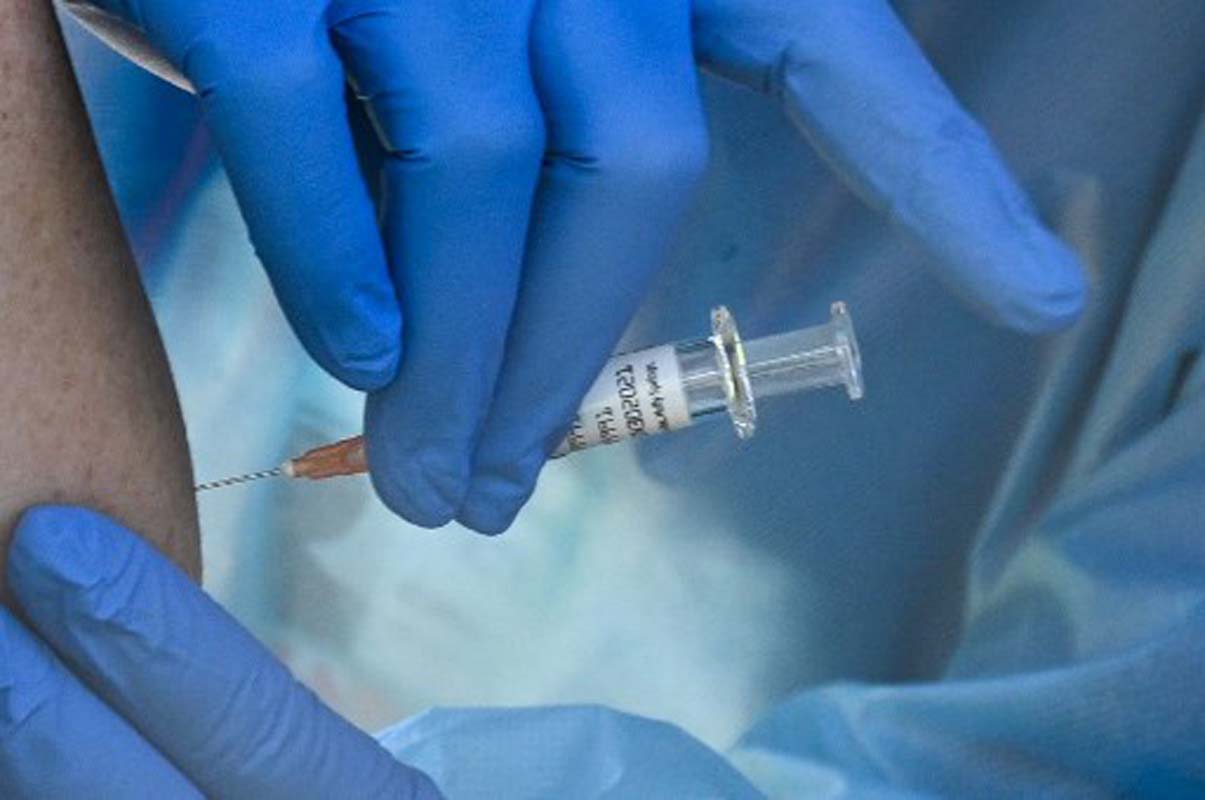
403
Sorry!!
Error! We're sorry, but the page you were looking for doesn't exist.
Russia Confirms AI-Driven Cancer Vaccine to Enter Patient Trials Soon
(MENAFN) Russia is preparing to begin clinical use of a pioneering cancer vaccine within the next few months, announced Alexander Gintsburg, director of the Gamaleya Research Institute of Epidemiology and Microbiology. The innovative treatment employs personalized mRNA technology enhanced by artificial intelligence to target malignant tumors based on the individual patient’s genetic profile.
In an interview with media on Saturday, Gintsburg confirmed the start of experimental treatment will occur “in the coming months,” collaborating with Moscow’s leading oncology centers—the Hertsen Research Institute and the Blokhin Cancer Center. Production of the vaccine is handled by the Gamaleya Center, while the clinical trials will take place at the partner institutions.
“In accordance with the plan approved by the Health Ministry, we are preparing to begin experimental treatment using the cancer vaccine based on neoantigens in a group of melanoma patients,” Gintsburg stated. He highlighted the vaccine’s completely personalized design, tailored specifically for each patient’s tumor data, making it unusable for others.
The project, initiated in mid-2022, utilizes messenger RNA (mRNA) to train the immune system to identify tumor-specific proteins (antigens) and eliminate cancerous cells through cytotoxic lymphocytes.
Because of its bespoke nature, this vaccine follows a unique regulatory process introduced by the Russian government earlier this year. “This is a fundamentally different process from the registration of standard drugs,” Gintsburg said, emphasizing close coordination with health authorities to advance under the new regulations.
Initially targeting melanoma, the vaccine has demonstrated encouraging outcomes in animal studies and limited human trials. Gintsburg previously noted that AI integration enables the full production cycle—from tumor analysis to vaccine creation—to be completed within about a week.
The Gamaleya Center, famed for developing the world’s first registered Covid-19 vaccine, Sputnik V, is also progressing on AI-powered treatments for other cancers, including pancreatic, kidney, and non-small-cell lung cancer—the latter being Russia’s most common and deadliest cancer type, notoriously difficult to treat.
According to Russia’s Health Ministry, the country has approximately 4 million cancer patients, with around 625,000 new diagnoses each year. If proven safe and effective during clinical trials, this vaccine could represent a significant advancement in Russia’s healthcare approach.
Gintsburg also revealed that the innovation has garnered international attention, with multiple foreign medical institutions expressing interest in collaboration.
In an interview with media on Saturday, Gintsburg confirmed the start of experimental treatment will occur “in the coming months,” collaborating with Moscow’s leading oncology centers—the Hertsen Research Institute and the Blokhin Cancer Center. Production of the vaccine is handled by the Gamaleya Center, while the clinical trials will take place at the partner institutions.
“In accordance with the plan approved by the Health Ministry, we are preparing to begin experimental treatment using the cancer vaccine based on neoantigens in a group of melanoma patients,” Gintsburg stated. He highlighted the vaccine’s completely personalized design, tailored specifically for each patient’s tumor data, making it unusable for others.
The project, initiated in mid-2022, utilizes messenger RNA (mRNA) to train the immune system to identify tumor-specific proteins (antigens) and eliminate cancerous cells through cytotoxic lymphocytes.
Because of its bespoke nature, this vaccine follows a unique regulatory process introduced by the Russian government earlier this year. “This is a fundamentally different process from the registration of standard drugs,” Gintsburg said, emphasizing close coordination with health authorities to advance under the new regulations.
Initially targeting melanoma, the vaccine has demonstrated encouraging outcomes in animal studies and limited human trials. Gintsburg previously noted that AI integration enables the full production cycle—from tumor analysis to vaccine creation—to be completed within about a week.
The Gamaleya Center, famed for developing the world’s first registered Covid-19 vaccine, Sputnik V, is also progressing on AI-powered treatments for other cancers, including pancreatic, kidney, and non-small-cell lung cancer—the latter being Russia’s most common and deadliest cancer type, notoriously difficult to treat.
According to Russia’s Health Ministry, the country has approximately 4 million cancer patients, with around 625,000 new diagnoses each year. If proven safe and effective during clinical trials, this vaccine could represent a significant advancement in Russia’s healthcare approach.
Gintsburg also revealed that the innovation has garnered international attention, with multiple foreign medical institutions expressing interest in collaboration.

Legal Disclaimer:
MENAFN provides the
information “as is” without warranty of any kind. We do not accept
any responsibility or liability for the accuracy, content, images,
videos, licenses, completeness, legality, or reliability of the information
contained in this article. If you have any complaints or copyright
issues related to this article, kindly contact the provider above.
Most popular stories
Market Research

- Forex Expo Dubai 2025 Returns October 67 With Exclusive Prize Draw Including Jetour X70 FL
- Xfunded Expands In Dubai, Strengthening Collaborations With Trading Influencers Across Europe
- SPAYZ.Io White Paper Explores Opportunities, Challenges And Ambitions In Payments Industry
- B2BROKER Taps Finery Markets To Power Institutional Crypto OTC On B2TRADER
- Zebu Live 2025 Welcomes Coinbase, Solana, And Other Leaders Together For UK's Biggest Web3 Summit
- Daytrading Publishes New Study Showing 70% Of Viral Finance Tiktoks Are Misleading




















Comments
No comment